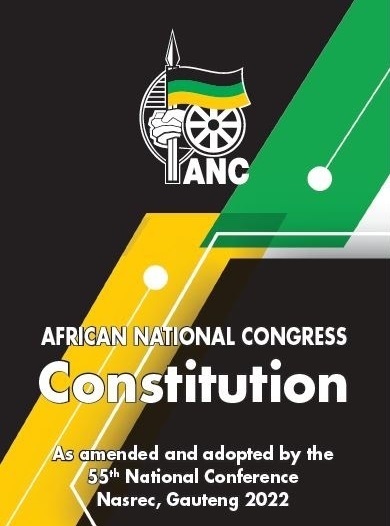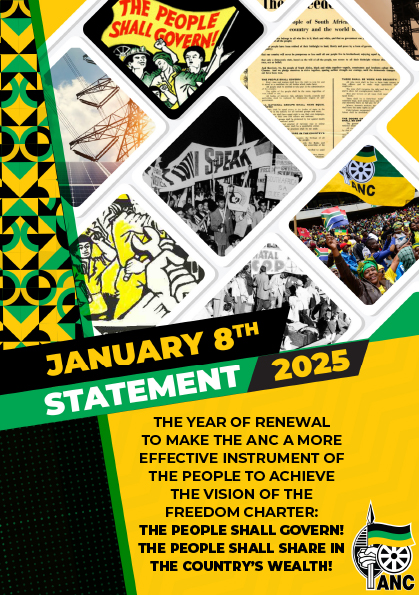Yesterday, 27 July marked the commencement of the ANC’s mid-year lekgotla aimed at assessing progress made against the objectives set out by the January 8th Statement and the manifesto we were elected to implement in 2014. It was also the day set aside to pay homage to the beautiful life that was Iko Mash in a moving send off held at the Baseline in Newtown.
I was granted leave from the ANC meeting so I could honor my dearly held wish to say goodbye to Iko. I was honored to have been given this task as I have had the opportunity and pleasure to have worked with Iko over the years. As many will know, Iko was a special character whose confidence and liveliness made her a darling to all. A drama queen who equally, had it in her to be disciplined and humble when circumstances dictated.
She confronted the stereotypes that characterized our country with such resilience when as the ANC we sought to affirm the rights of the LGBTI sector.
She championed campaigns in our communities, especially our black townships, when it was taboo to be openly gay, lesbian or a trans-gender person. Her and a group of fellow activists used their circumstances to open the secrets of our communities and the denial which prevailed on the existences of LGBTI person within black communities.
The inescapable truth that we had to face when the ANC was involved in the CODESA negotiations was that inter alia sexual and gender diversity exists in South Africa and that the oppression of the LGBTIs must be addressed as part of the emancipation of the people of South Africa from apartheid.
While as black people we were discriminated on the basis of colour, the oppression of LGBTI people has been deep rooted as it went beyond colour and was fueled by hatred shown toward them not only by the apartheid system but by their own neighbourhoods.
Statistics have without contradiction shown that between 5% and 10% of every race, every continent, every culture, every language, every religion has some measure of same-sex orientation. The LGBTI members are to be found in all classes of society, rich or poor and we need to live with that unavoidable truth.
The Human Dignity Trust in London has in its extensive work on LGBTIs found that LGBTis are not a homogenous group. Lesbians, as a sub-group, experience distinct and additional human rights violations compared to gay men. For lesbians, the “intersectionality” between discrimination against women and against gays and lesbians “creates a particularly lethal combination”.
As South Africans we should be proud that in 1994, we became the first country in the world to provide express protection on the ground of sexual orientation.
Our unique engagement with sexual orientation found expression in both our Interim and Final Constitutions. Our oppression by the apartheid regime made it easier for us as the ANC to accept that the oppression of LGBTI should be rejected equally with race, gender and other forms of discrimination.
The 1993 interim Constitution which took effect on 27 April 1994 in its equality clause expressly provided protection from unfair discrimination on the grounds of “sexual orientation”. This was a world first.
The 1996 final Constitution in its equality clause preserved protection from unfair discrimination on the ground of sexual orientation.
In groundbreaking cases, our courts in particular the Constitutional Court has been instrumental in outlining the meaning and extent of the equality rights of LGBTIs equality.
Most importantly, the Constitutional Court has established that:
- Gays and lesbians are a permanent minority in society who in the past have suffered from patterns of disadvantage.
- The impact of discrimination on them has been severe, affecting their dignity, personhood and identity at many levels.
- Permanent same-sex life partners are entitled to found their relationships in a manner that accords with their sexual orientation: such relationships should not be subject to unfair discrimination.
- Gays and lesbians in same-sex life partnerships are ‘as capable as heterosexual spouses of expressing and sharing love in its manifold forms’. They are likewise ‘as capable of forming intimate, permanent, committed, monogamous, loyal and enduring relationships; of furnishing emotional and spiritual support; and of providing physical care, financial support and assistance in running the common household’. They ‘are individually able to adopt children and in the case of lesbians to bear them’
- Finally, they are ‘capable of constituting a family, whether nuclear or extended, and of establishing, enjoying and benefiting from family life’ in a way that is ‘not distinguishable in any significant respect from that of heterosexual spouses’.
The achievements of the ANC government in protecting and highlighting the rights of LGBTI communities have not only found expression in the constitution but have seen a remarkable recognition of the LGBTis rights embodied in several body of legislation passed by the national and provincial legislatures.
The beneficial impact of constitutional equality on LGBTI self-esteem, self-regard, inner dignity, social assertiveness has been immeasurable.
We have become a world leader and have had a positive influence on the African Continent and the rights which our constitution conferred to the LGBTis have been a significant catalyst for other African LBGTI communities.
It was not surprising that based on our initiative as South Africans that on 22 May 2014, the African Commission on Human and People’s Rights did something wholly unprecedented. It committed an emphatically gay- and lesbian-friendly act. It adopted Resolution 275.
This condemned violence and other human rights violations against persons on the basis of real or imputed sexual orientation or gender identity. The historic importance of this resolution cannot be overstated. It is the first time that an Africa-wide body has taken a stand for LGBTI rights and protection.
Iko felt the brunt of discrimination, she challenged the stereotypes when few were bold enough to come and pronounce themselves as Gay or Lesbian. Today we are confronted with the brutal realities of corrective rape and murders in our country. Evidence that the struggle Iko stood for remains.
We must not lose sight of the total freedom that our LGBTI communities must enjoy within a democratic South Africa. We must fight for these right, we must entrench them in society and we must defend them where they are threatened.
Working together we must never tire in our efforts to rid our communities and society of such criminal acts. South Africa belongs to all who live in it, regardless of their sexual orientation and choices.
Le rona re batho! Nathi singabantu!
May Iko rest in everlasting peace. She will be sorely missed.





